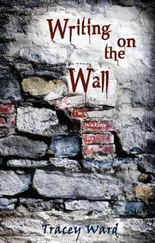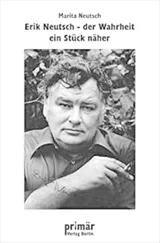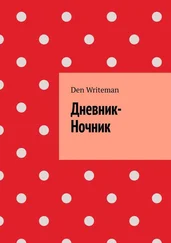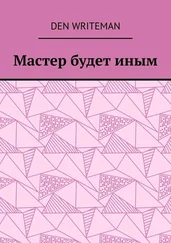Dad and most other working men hated Mondays, and looked forward to Friday night and a wage packet; above all Friday was the gateway to the greener grass of the weekend. Naturally young children had a different aspect to the week; we fought to keep heavy eyes open as bedtime approached, because that would end another day, but every morning was a new adventure. However, as for the grown-ups Friday night was our favourite, as for John and me it was our bath night.
First the rumbling in the backyard as Dad lifted the tin bath from the nail on the wall, staggering through the door with it on his back like a tortoise from outer space while Mother closed the door behind him to keep out the cold. There is nothing so soothing and delicious as a warm soapy bath in front of a blazing fire and even when soap got into our eyes it was a small price to pay for this weekly luxury. Once we were out of the bath, everything was warm—the towels, the milk—and best of all we felt clean and shiny. Roll on next Friday. If only we could carry these moments of happiness and contentment into adulthood.
Another pal of mine was John Broome, and when I was a little older his mother kindly gave me an overcoat, grey and much too large. When I wore it, only the top of my head and my feet were visible, but it kept me warm through two winters, when it finally fell to pieces before it could be handed down again.
It was an unwritten law that to qualify for use of the Mucky Broos one either lived in Ward Street or Leslie Street. We regarded it as our private and exclusive play area, and as far as I can remember no stranger ever played there or attempted to take it from us, which is hardly surprising, really, as there were thousands of Mucky Broos in Oldham and ours was well down the list of much sought-after properties. We played cricket in the summer with a pile of coats for the wicket and football in the winter with two piles of coats for the goalposts; an old tennis ball sufficed for both sports. In the soft summer evenings quite a few people in Ward Street sat out on chairs watching our games; folks who lived on Leslie Street stood in the doorways, as they didn’t have the advantage of a pavement on which to place their chairs. For them it was only dirt but to us lads they were an appreciative audience and they spurred us on to ludicrous heights, and we played whatever game we were into with extra panache. We lads were all mentally in an England shirt and the couple of dozen watchers were a packed Wembley.
When it was completely dark, we wandered over to Ward Street for another of our distractions. Whoever was ‘It’ faced the wall of a house and shouted “M-I-L-K, MILK” and at the same time we advanced slowly towards him from across the street. A clever ‘It’ would start slowly with ‘M’ and then rush ‘I-L-K’, whirling round, and anybody caught moving took his place. This game was illuminated by the light from the toffee-shop window, a shop which never seemed to close in case somebody wanted a box of matches or a jar of pickles or even toffees. When we had money we were in the shop like a flash, with a coin on the counter and asking for a ha‘p’orth of ‘all round-the-window’, which meant that the lady took a toffee from each of the boxes on display. When the lamplighter approached with his long pole to touch the gas mantle in the lamp opposite we had added illumination. The game continued until Mother’s high-pitched voice called into the darkness, ‘Eriiiiic’, and sadly that was the end of my night’s entertainment.
Of course it wasn’t all play. I had my day job helping to lay the table and sometimes drying a plate during the washing-up, but my most important assignment of all was being responsible for cutting old newspapers into squares to hang on a nail in the lavatory at the bottom of the garden.
I can’t remember John ever taking part in our rough and tumbles on the Mucky Broos. Although he was now old enough, Mother wanted to keep an eye on him and I was quite happy with this arrangement. After all, John was the centre of her universe and, much as I enjoyed his company indoors, during our games I was glad to be relieved of the responsibility of looking after him. I couldn’t anyway as I was too busy enjoying myself.
Some Saturday mornings Mother gave us tuppence each to go to the Imperial, the picture house better known as ‘the Fleapit’. It wasn’t too far away, on Featherstall Road, almost opposite my numberplate collection station. She gave us tuppence so that we could afford the best seats and wouldn’t have to mix with the scruffbags in the penny seats. John and I had other ideas: we didn’t mind sitting with the ‘untouchables’ so that we had the other penny to spend on toffees.
There was always a cacophony of noise before the programme started, whistles and laughter, and scallywags running up and down the aisles, but the babble dwindled quickly when the lights went down. Usually there was a serial every Saturday morning. The most scary one I remember was called The Shadow. Two men were talking together or, to be more accurate, miming talking together—what they were discussing was written at the bottom of the picture. Then suddenly the music went into low menacing phrases. It wasn’t really an orchestra but a woman at the piano in the pit, and as she pounded out a crescendo the shadow of a hooded person crept along the wall towards the two men. This was nail-biting stuff. We all knew what was going to happen, but nobody closed their mouth. Slowly the shadow raised an arm, holding the shadow of a weapon, to bring it crashing down on the head of the nearest man, who collapsed immediately. His colleague whirled round, drew his pistol and fired at the shadow, which was useless, it seemed, because the shadow, completely oblivious, sidled off the screen. There were, of course, no sounds of gun shots—after all, most films were silent in those days—but the lady pianist was working herself into a frenzy to build up to the ‘to be continued next week’. The lights went on again before the next effort, but conversation was now subdued as The Shadow was discussed.
Sometimes the serial was followed by a comedy, but romance was anathema to us and a couple kissing was greeted with whistles, boos and showers of orange peel being hurled at the screen until the lights went up and the manager walked on stage and immediately we were subdued. He had a rough voice and he threatened us all with expulsion if we didn’t behave. Meanwhile the film was still running, partly behind him on the silver screen but mostly on him as he spoke, and by the time he left the stage the offending scene was well past, or at least indecipherable until the lights went down and the lady pianist began again with sloppy arpeggios. Romantic films weren’t often shown but whenever there was a kissing sequence it invariably provoked this situation. Sometimes I felt sorry for the manager: he probably had to show what he was given, films that a decent cinema would reject out of hand. But we still looked forward to the next Saturday morning.
Already I am now seven years old and still haven’t decided what my career is going to be, although grown-ups always seem to ask me what am I going to be when I grow up. In truth, I haven’t given it a thought—I have enough problems enjoying my childhood.
Wakes Week in the cotton towns of Lancashire was the annual holiday. These holidays were staggered—for instance, Royton’s Wakes followed Oldham Wakes, and Rochdale’s Wakes came after Royton’s and so on, the reason for staggering obviously being so that only one town would be closed down at a time and Lancashire’s cotton production would continue with hardly a hiccup.
Naturally we all looked forward to Oldham’s Wakes. A travelling fair visited Oldham for the week, and the stalls of Tommyfield market were removed and replaced by the fair. The biggest attractions were the roundabouts, with prancing horses moving up and down under garish lights as they whirled round the mechanical orchestra belting out brassy cymbalised melodies; screams and laughter from the dodgems; coconut shies; hoopla stalls; roll a penny. There was usually a boxing booth, outside which two tough, battered characters dressed for the boxing ring stood on a raised platform with their arms folded. Next to them, only half their size but twice their IQ, the barker spoke through a megaphone, announcing that any contender lasting three rounds with either of his roughnecks would receive a pound. Many a brave lad accepted the challenge, and took off his shirt and vest to have his boxing gloves laced while the crowds bustled in to surround the ring. When the place was full, the barker fastened the tent flap and climbed through the ropes to announce the first bout. I was too young to go into the booth, but I asked Dad what went on inside. He shuddered and told me that few of the young hopefuls survived even into round two: most of them, blood-spattered with shocked eyes, were helped from the ring by their mates, and others, more prudent, chickened out before they had a chance of stardom. Dad swore that he would never set foot in a boxing booth again. He said it was a human abattoir and just to watch left him feeling sick and debased. All that remained in my mind was what is an abattoir?
Читать дальше












